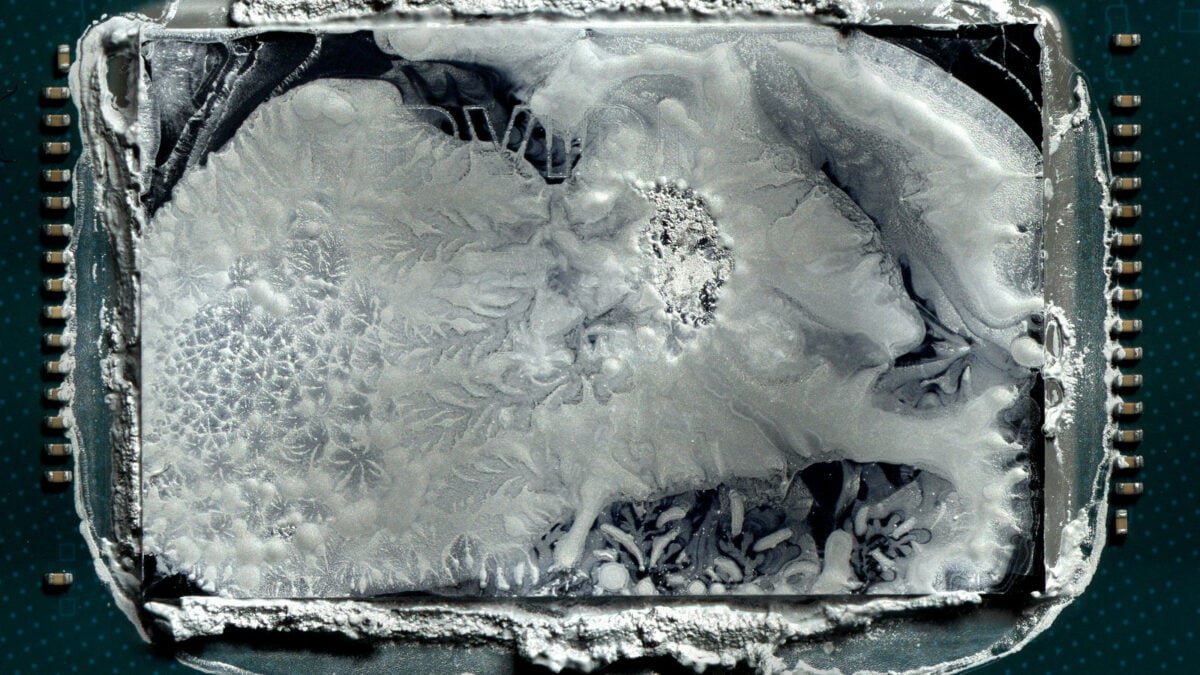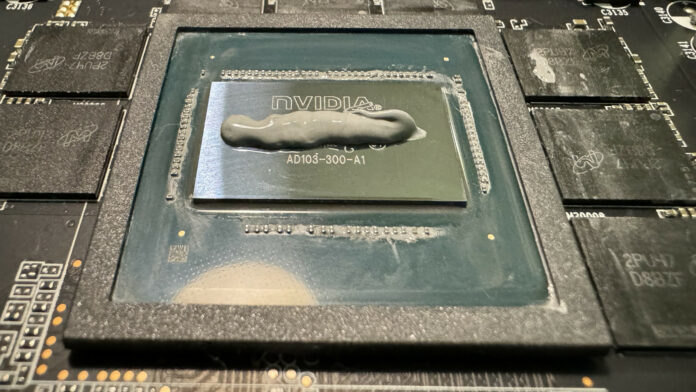Expensive as high-end graphics cards such as GeForce RTX 4080 are, their cost comes with an expectation that the materials surrounding the Nvidia GPU are of a high standard. Worryingly, though, it appears that some board partners may be pairing their pixel pushers with subpar thermal paste. As a consequence, some owners are reportedly suffering with overly loud and hot cards that will shutdown due to stress in select circumstances with concern for the longevity for their four-figure component.
When GeForce RTX 4080 debuted back in November 2022, it quickly established itself as one of the best graphics cards on the market and remains so today. Between then and now, though, time has taken a toll on the thermal compound marrying Nvidia GPUs and their coolers. While some degradation is to be expected, new findings suggest this process may be accelerating due to AIB design decisions. More specifically, their choice of thermal paste is seemingly holding back performance.
An investigation conducted by Igor’s Lab reveals a pattern of noise and thermal performance issues stemming from thermal paste. Igor’s sample size is admittedly on the small side, consisting of two GeForce RTX 4080 graphics cards, but we believe it’s important to highlight any potential issues with GPUs. After all, it only took a few melting GeForce RTX 4090 power connectors before a flood of reports came to light, prompting action from Nvidia itself.
The two affected cards in question are from Asus and Manli (sister company of Zotac). Both exhibited surprisingly high operating temperatures, with the hotspot reporting peaks of 100°C and 103°C, respectively. Meanwhile, GPU temps peaked at 73°C on both cards. Curiously, this was with the fans running at full pelt, making for a hot and noisy (to the tune of 43.9dBA) graphics card.

Taking both graphics cards apart reveals a truly sad sight. The Nvidia GPUs at the heart of each card are beset by poor contact with the heatsink, with 21-35% of the die sweating away without any thermal paste to conduct its heat away. This is in part due to the differences in die size between GeForce RTX 4080 and 4090 (with many AIBs using the same cooler for both). However, as Igor explains, the problems go deeper still.
As Igor succinctly describes: “It’s not even paste, it’s soup.” Examining the thermal soup under a microscope, he uncovers a poor mix of silicone and other materials which have led to compromised thermal conductivity. What makes this affair all the more frustrating is that these problems are easily remedied simply by using a more competent thermal paste atop the Nvidia GPU.
Numbers don’t lie, as an application of Alphacool Apex thermal paste sees Nvidia GPU hotspot temperatures tumble on both cards by a staggering 25-28°C. This has a positive knock-on effect for noise levels too, falling to just 32.6dBA. Sadly, though, this does make coil whine audible but it’s a small price to pay in reducing the stress faced by the $1,200 graphics card.
Igor has reported his findings to Nvidia and I expect the company takes appropriate action for GeForce RTX 4080 production if necessary. It’s unclear whether these thermal paste problems affect other graphics cards but it’s entirely possible, although Founders Edition variants aren’t implicated thus far. Proper thermal interfacing is a must, especially on components this expensive and prone to running at scorching temperatures. One need only look to the benefits of delidding a Core i9 14900K for further proof.
If nothing else, this should hopefully prompt a change in the quality of compound used for future GPUs, including the GeForce RTX 50 series. While we strongly doubt Nvidia will highlight any changes made in light of these findings, you can expect coverage of Nvidia’s keynote from us on the show floor as it unfolds. In the meantime, give our GeForce RTX 4080 Super review a read for up-to-date benchmarks and our thoughts on GeForce RTX 4080’s replacement.
Featured image credit: Igor’s Lab
